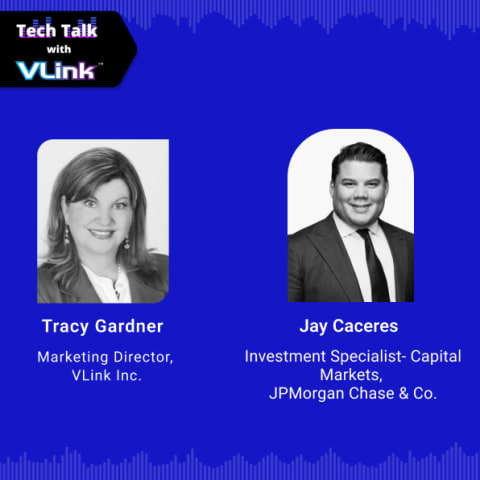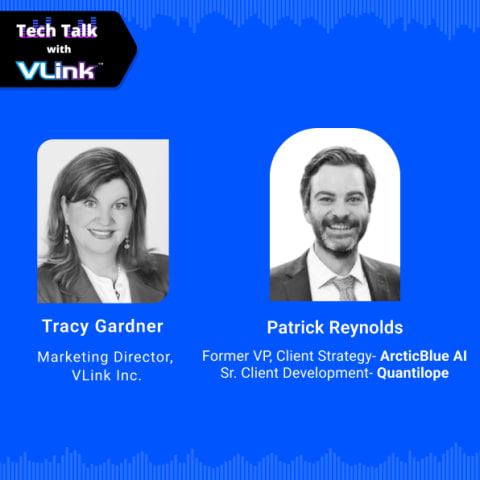Many businesses nowadays are shifting towards cloud computing thanks to its plethora of benefits like scalability, flexibility, and cost-effectiveness. Cloud computing is the on-demand delivery of services including servers, storage, software, analytics and intelligence over the Internet.
The cloud computing landscape is dominated by three major players: AWS, Microsoft Azure, and Google Cloud Platform which make up a combined 66% of the cloud market share.
In this blog, we will explore the comprehensive comparison between AWS vs Azure vs GCP. It will provide you with an overview of each platform, highlighting the key differences between them along with their benefits and considerations.
An Overview of 3 Big Cloud Platforms
Here is an overview of 3 big cloud platforms: AWS (Amazon Web Services), Microsoft Azure and GCP (Google Cloud Platform).
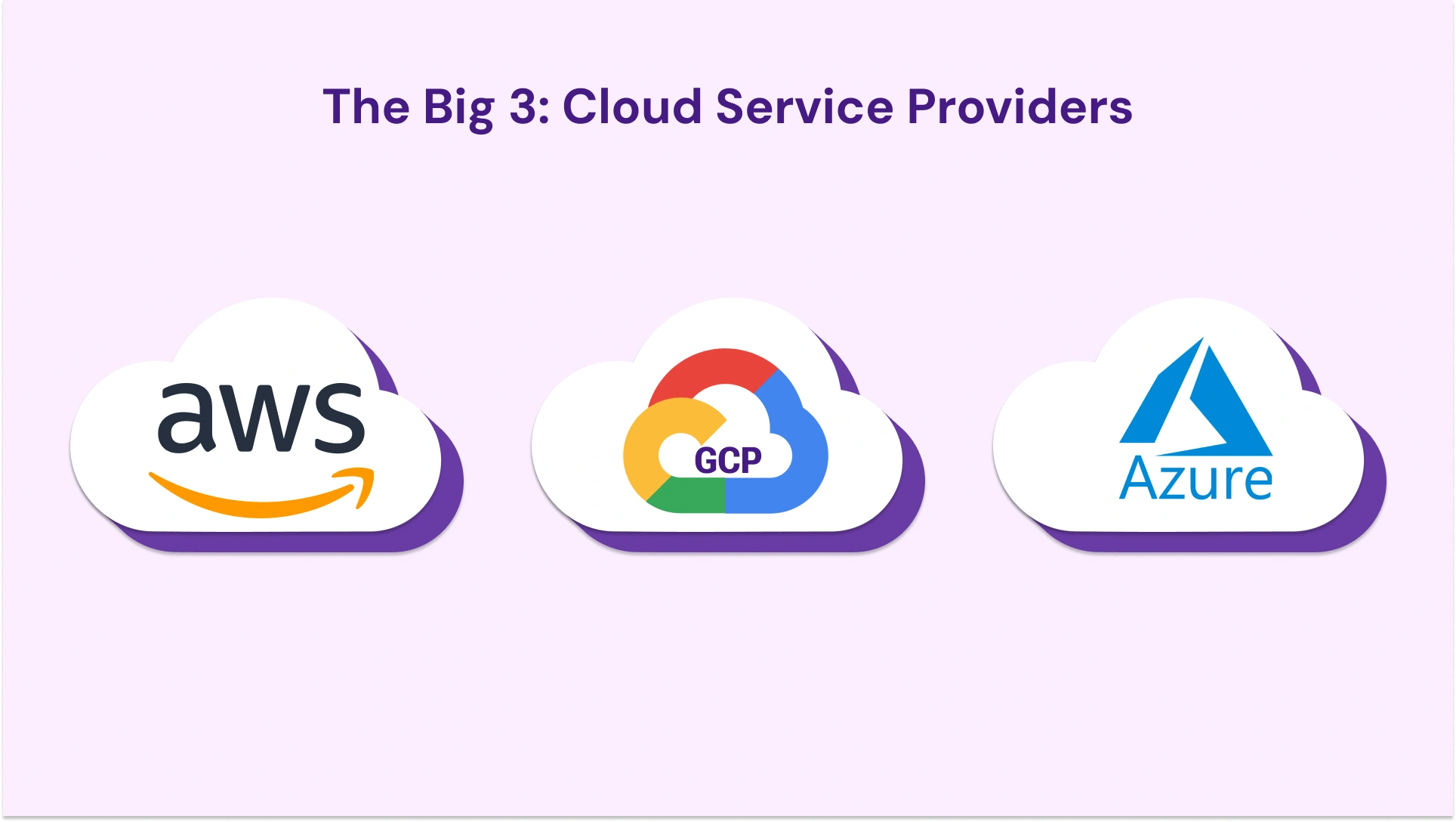
Amazon Web Services (AWS)
AWS is Amazon’s cloud computing service, offering several services such as computing, storage, networking, databases, analytics, machine learning, and AI. From startups to established organizations, businesses of all sizes are leveraging this cloud platform.
Originally, AWS started as a private cloud service for Amazon employees. In 2006, it became publicly accessible for businesses with offerings like Amazon S3 cloud storage and elastic computing cloud (EC2). Today, Amazon Web Services has over 200 fully functional services to satisfy millions of users. With a market share of 31% in 2024, AWS has become a dominant player in the cloud computing platforms.
Famous Brands Using AWS
- Netflix
- Coca-Cola
- Airbnb
- Coursera
- Lyft
Microsoft Azure
Azure is Microsoft’s public cloud platform, offering a wide range of services infrastructure as a Service (IaaS), platform as a Service (PaaS), and Software as a Service (SaaS) for analytics, virtual computing, storage, and networking. It is not only Windows-based services but also supports open-source programming, platforms and technologies, enabling enterprises to create and maintain any software.
Since its inception in 2010, Azure has established a cloud-based platform with over 200 products and services. It secures second position in the cloud computing industry with 25% of the market share.
Famous Brands Using Microsoft Azure
- Starbucks
- Mitsubishi Electic
- eBay
- Samsung
- Walmart
GCP
Google Cloud Platform (GCP) is a subset of Google and the youngest among the Big Three cloud service providers, alongside AWS and Azure. Despite its later entry into the market, it offers a powerful suite of cloud services capable of running and supporting a wide range of applications. GCP operates with lesser data centers and delivers DevOps-friendly solutions.
Since its launch in 2010, GCP has expanded to offer over 100 services, including big data analytics, networking, and computing solutions. It also includes Google Workspace, corporate Android, Chrome OS, and more. As of 2024, GCP is the world’s third-largest cloud service provider, holding a 10% market share.
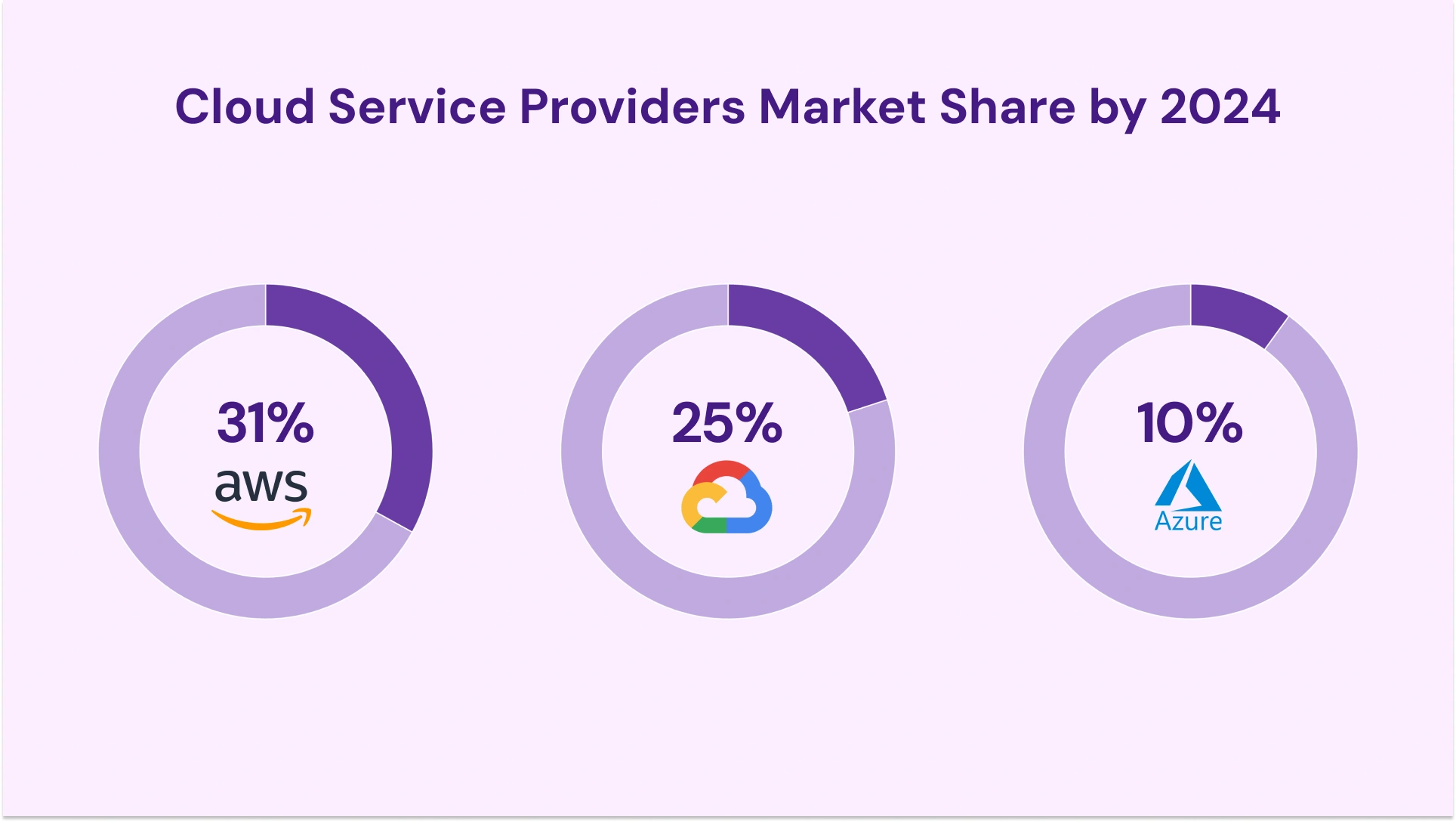
Famous Brands Using GCP:
- Spotify
- PayPal
- The Home Depot
- Unilever
AWS Vs. Azure Vs. GCP: Quick Comparison
Here is a table showing quick differences between AWS Microsoft Azure, and GCP:
Details | AWS | Azure | Google Cloud |
| Launch Year | 2006 | 2010 | 2011 |
| Market Share | Largest (31%) | Second Largest (25%) | 10% |
| Core Strength | Compute & Storage (EC2, S3) | Integration with Microsoft tools | AI/ML, Big Data, Kubernetes |
| Compute Services | EC2, Lambda | Virtual Machines, Azure Functions | Compute Engine, Cloud Functions |
| Storage Solutions | S3, EBS, Glacier | Blob Storage, Disk Storage | Cloud Storage, Persistent Disks |
| Database Services | RDS, DynamoDB, Redshift | SQL Database, Cosmos DB | Cloud SQL, Bigtable, BigQuery |
| Pricing | Costly | Manageble | Minimal (Free Credits) |
| Global Reach | Widest network with 32+ regions | 60+ regions | 37+ regions |
| Security & Compliance | Extensive tools (IAM, Shield, WAF) | Integrated with Active Directory | Strong data privacy, encryption |
| Hybrid Cloud | AWS Outposts | Azure Stack | Anthos |
| AI & ML Services | SageMaker, Lex, Rekognition | Azure AI, Machine Learning Studio | Vertex AI, TensorFlow, AutoML |
| IoT | Largest provider (IoT core Alexa-based services) | Smaller, but targeted (IoT Edge-based services) | Emerging (Cloud IoT Core-based services) |
| Blockchain | Most widely used blockchain on AWS | Three-step solution blockchain technology and applications | Infrastructure assistance for Ethereum and Hyperledger fabric |
| Free Tiar | 12 months free, always-free offers | 12 months free, $200 credit | $300 credit for 90 days |
| Integration | Strong (supports interoperability, especially via public cloud) | Strong (supports hybrid architecture and interoperability) | Emerging (strong APIs, limited ETL tools) |
| Ideal For | Enterprises needing flexibility | Microsoft-centric businesses | Startups, AI/ML & Big Data users |
Choosing The Best Cloud Platform for Your Enterprise: AWS vs. Azure vs. Google Cloud
AWS (Amazon Web Services) vs. GCP (Google Cloud Platform) vs. Azure: 3 the largest cloud providers can deliver feature-rich cloud infrastructure. Before selecting the right cloud platform for your enterprise, it's essential to understand AWS, Azure and GCP comparison to identify their capabilities.
Let's have a look at some of the most important factors to consider when choosing the best cloud platform for your enterprise.
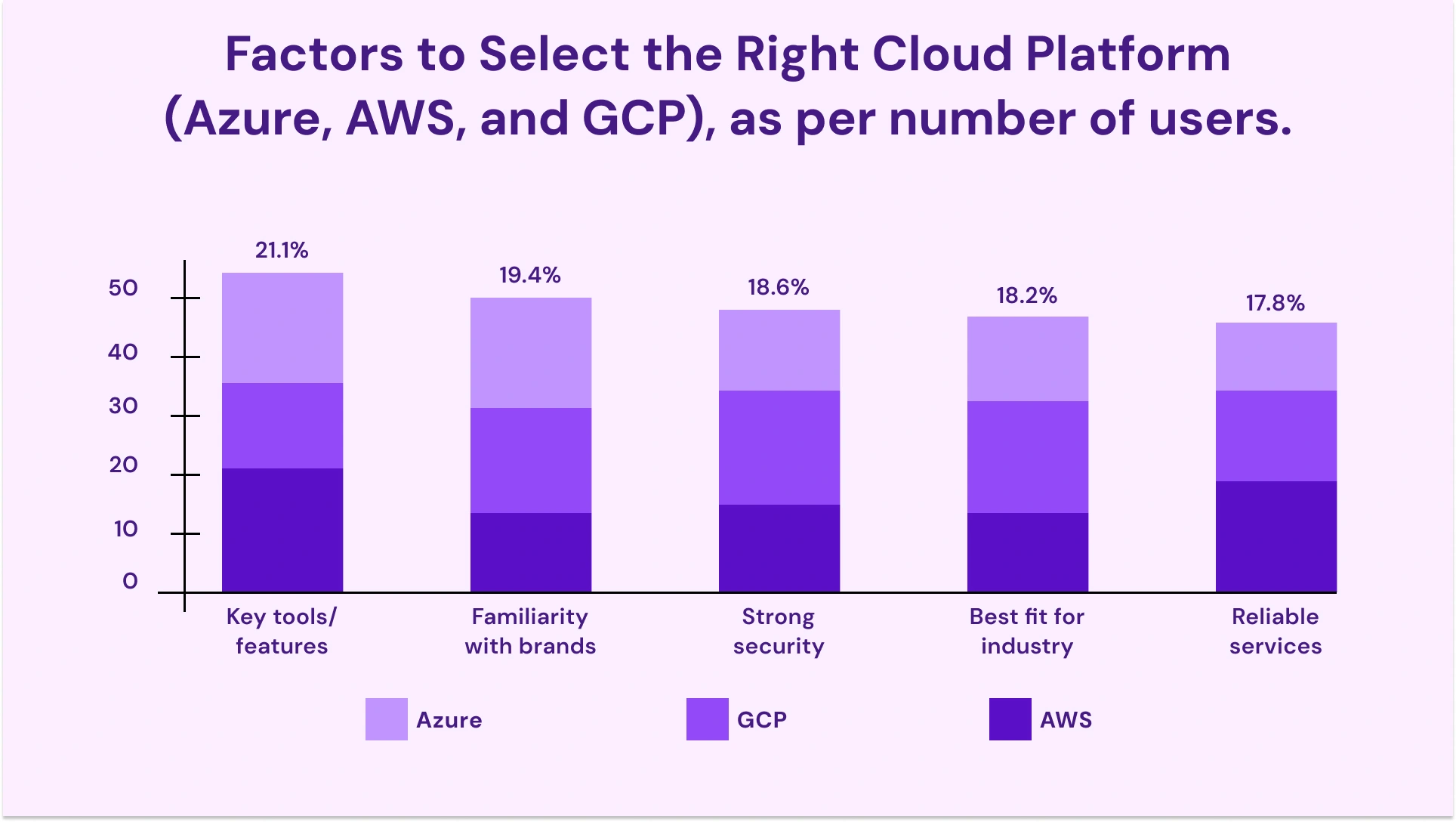
Availability
Amazon Web Services was the first and remains the largest cloud platform globally, offering a higher number of availability zones than its competitors. Currently AWS offers over 84 availability zones worldwide.
In comparison, Google Cloud has 24 availability regions, with a total of 73 zones.
Azure is a great alternative for widespread accessibility, boasting 60+ regions available in more than 140 countries worldwide.
Market Share
As of May 2024, AWS holds a 31% market share, Microsoft Azure has 25%, and Google Cloud Platform secures 9%.
Services Offered
The number of services offered is the key difference between the three cloud platforms: AWS vs. Azure vs. GCP. With several services available, these companies are suitable for a wide range of enterprises.
- Amazon Web Services offers more than 200 services.
- Microsoft Azure offers more than 200 services.
- Google Cloud offers more than 160 services.
AWS offers various types of infrastructure as a Service (IaaS), such as database, storage, computing, content delivery, and networking. Other popular solutions are EC2, S3, and Lambda.
Azure Virtual Machines, Blob Storage, Azure functions, computation, data management, networking, and reliability are some of Azure's offerings. It provides robust hybrid cloud solutions, integrating seamlessly with Microsoft products.
GCP offers notable services such as Compute Engine, BigQuery, and TensorFlow. Thanks to its cost-effectiveness, privacy, traffic security, and payment configuration flexibility, Google Cloud is another excellent alternative.
Here’s a table outlining the difference between AWS vs. Azure vs. GCP based on specialized services:
| Specialized Services | AWS | Azure | GCP |
| AI & ML | SegaMaker, Comprehend, Lex, Polly | Machine Learning, Databricks, Cognitive Search, Bot Service, Cognitive Services | Vertex AI, AutoML, Dataflow CX, Cloud Vision, Virtual Agents |
| IoT | FreeRTOS, IoT Core, Greengrass, IoT Analytics, SiteWise | Azure IoT Hub/Central, IoT Edge, Azure Sphere, Azure RTOS | Google Cloud IoT Core |
| DevOps | CodePipeline, CodeBuild, CodeDeploy, CodeStar | Azure Boards, Pipelines, Repos, Test Plans, Artifacts | GCP DevOps CloudBuild, Artifact Registry |
| AR/VR | Sumerian | Mixed Reality (Spatial Anchors/Remote Rendering) | ARCore |
Compute, Storage and Networking
AWS's primary compute service is its EC2 instances, offering extensive customization options. Additional compute solutions include AWS Lambda, EC2 Container Service, Elastic Beanstalk for application deployment, Elastic Kubernetes Service (EKS), and Autoscaling across all services.
Azure’s compute services revolve around its Virtual Machines (VMs), supported by tools like Cloud Services and Resource Manager for seamless cloud application deployment, along with Azure Autoscaling for performance optimization.
Google Cloud’s Compute Engine delivers customizable virtual machines hosted in its data centers, featuring persistent disk storage, high performance, and flexible configurations tailored to user requirements.
AWS storage solutions include Elastic Block Storage (EBS), Simple Storage Service (S3), Elastic File System (EFS), Glacier for archival storage, Import/Export for large data transfers, and Storage Gateway for seamless on-premises integration.
Azure provides comprehensive storage options with Azure Blob Storage, along with Queue, Table, and File storage. Additional services include Import-Export, Site Recovery, and Azure Backup.
Overall, AWS, Azure, and Google Cloud Platform (GCP) offer a wide range of services across computing, database, storage, and networking domains.
Let’s have a look at the cloud platform offerings that highlight the strengths and differences between AWS, Google Cloud, and Azure.
| Compute Services | AWS | Azure | GCP |
| VM | Amazon EC2 | Azure Virtual Machine | Google Compute Engine |
| PaaS | AWS Elastic Beanstalk | App Services | Google App Engine |
| Container | AWS Elastic Container/Kubernetes Service | Azure Kubernetes Service
| Google Kubernetes Engine
|
| Serverless Computing | AWS Lambda, Serverless Application Repository | Functions | Google Cloud Functions |
Storage/Database Services | AWS | Azure | Google Cloud Platform |
| RDBMS | AWS RDS | Azure SQL/Database for MySQL/PostgreSQL | Cloud SQL |
| NoSQL | DynamoDB, Simple DB | Azure Cosmos DB, Table Storage | Big Table, Cloud Datastore |
| File Storage | Elastic File System | Azure File Storage | Google File store |
| Archive Storage | Amazon Glacier | Azure Archive Storage | Google Storage |
Networking Services | AWS | Azure | GCP |
| Virtual Networking | Virtual Private Cloud | Virtual Network | Virtual Private Cloud |
| Load Balancing | Elastic Load Balancer | Azure Load Balancer | Google Cloud Load Balancing |
| Firewall | AWS Firewall/Web Application Firewall | Azure Firewall | Google Cloud Firewalls |
Performance and Scalability
Another important factor to consider when choosing the right between AWS vs. Azure vs. GCP is performance and scalability.
AWS offers unmatched scalability with services like Auto Scaling and Elastic Load Balancing. Azure delivers high performance through global data centers and hybrid cloud options.
On the other hand, Google Cloud leverages its high-speed network infrastructure to ensure consistent performance and scalability, especially for big data and AI applications.
GCP vs. AWS vs. Azure: Security and Compliance
AWS, Azure, and GCP prioritize security with encryption, identity management, and compliance certifications. Amazon Web Services leads with a broad security portfolio and global compliance standards. Microsoft Azure integrates security with Microsoft tools, while GCP emphasizes security by design, offering strong data protection and privacy controls.
Tools
Let's explore the key tools that AWS, Microsoft Azure, and Google Cloud servers provide for businesses.
Amazon Web Services (AWS) Key Tools
AWS offers a comprehensive suite of tools to support enterprises' growth. Gluon is an open-source deep learning library that simplifies the process of creating neural networks, making AI accessible even for those without prior experience.
DeepLens, an AI-enabled camera, allows businesses to implement machine learning algorithms for several tasks, such as optical character recognition, image identification, and object recognition.
Another powerful AWS tool, SageMaker, helps enterprises to train employees and execute machine learning. It also involves Lex conversational interfaces (used in Alexa), Greengrass IoT messaging, and Lambda serverless computing.
In addition, Amazon Web Services provides CloudWatch for real-time monitoring and CloudFormation for automation, enabling businesses to scale efficiently and securely.
Microsoft Azure Key Tools
Cognitive services are available in Microsoft Azure tools. Cognitive services are a set of powerful APIs such as Bing Web Search API, Face API, Computer Vision API, and service. It enables enterprises to integrate advanced AI capabilities like image recognition, facial detection, and customer search functionality into their software.
Azure also offers a wide range of IoT management and analytics services, along with a flexible serverless computing platform for scalable application development.
Moreover, Azure seamlessly integrates with Microsoft’s on-premises software. Solutions like Windows Server Backup in Windows Server 2012 R2 and Windows Server 2016 are directly connected to Azure Backup for secure data protection. Developers can also host Visual Studio projects on Azure through Visual Studio Team Services, streamlining collaboration and deployment.
In addition, Azure provides tools like Azure Monitor for performance tracking and Azure DevOps for continuous integration and delivery (CI/CD), ensuring smooth and efficient software development.
Google Cloud Platform (GCP) Key Tools
Google Cloud has been at the forefront of bringing artificial intelligence advancement to enterprises. It includes several APIs for natural language processing and voice translations, along with TensorFlow, an open-source software library to build AI/ML models.
GCP also emphasizes developer-friendly tools such as Cloud Deployment Manager and Cloud Operations Suite for seamless application management. However, IoT and serverless services are still in the early stages of development.
Pricing
When it comes to choosing the right cloud provider, pricing is one of the most important elements to consider. Understanding cloud platform pricing comparison is crucial for businesses looking for the best fit as per their specific needs and budget.
Let’ explore how AWS, GCP, and Azure compare in terms of pricing details:
AWS Pricing:
AWS follows a pay-as-you-go pricing model, allowing businesses to scale resources flexibly while maintaining cost control. Ingress (data received) is typically free, while egress (data sent) costs vary by volume and region but are usually $0.05 to $0.09 per GB across different network interfaces and pricing plans.
It also offers cost-saving plans through Reserved Instances and AWS Savings Plans, providing significant discounts for companies planning to use long-term usage with upfront payments.
Azure Pricing:
Microsoft Azure operates on a pay-as-you-go pricing model. For additional savings, this cloud server offers Reserved Virtual Machine (VM) Instances with discounted rates for long-term commitments.
Data ingress (incoming data) is typically free, while egress (outgoing data) charges are applied based on data volume and region. Azure also provides volume discounts through the Azure Hybrid Benefit, allowing customers with existing Microsoft licenses to reduce costs further.
Google Cloud Pricing:
Google Cloud follows a flexible pay-as-you-go pricing model, offering both predefined and custom machine types to meet business needs. Data transfer costs depend on the volume of data sent and received, with pricing varying by region and usage.
Cost savings are available through Committed Use Contracts, which provide significant discounts for one- or three-year upfront commitments.
Additionally, Google Cloud offers three support tiers—Basic, Development, and Production, with different levels of support coverage and response times.
Ease-of-Use
Last but not least, ease of use is a critical factor when choosing the right cloud provider between AWS, Azure, and GCP.
In terms of ease of use, Amazon Web Services (AWS) stands out as the clear winner with its feature-rich, user-friendly dashboard and extensive documentation, making it accessible for users of all levels.
Unlike AWS, where managing users and permissions across accounts can be complex, Azure keeps everything centralized. However, one drawback is the lack of comprehensive documentation and guidance, which can make it challenging for newbies.
On the other hand, Google Cloud (GCP) is a user-friendly enterprise cloud platform thanks to its clear guidance, comprehensive documentation, and well-organized dashboard.
Pros and Cons of AWS, Azure, and Google Cloud
When deciding which cloud computing platform to choose for your enterprise, consider some of the following benefits and considerat
Amazon Web Services (AWS) Pros & Cons
Pros:
- Offers over 240 cloud and on-premises services
- Easier for new cloud users, with many affordable open-source solutions
- Provides vast configuration options, self-service provisioning, and fully managed services.
- Features a wide range of compatible and secure third-party add-ons.
- Leverages global infrastructure to back up data across multiple locations.
Cons:
- Complex pricing
- Limited hybrid and on-premises capabilities
- Enterprise-level technical support is costly
Microsoft Azure Pros & Cons
Pros:
- Offers high-quality hybrid cloud and on-premises services
- Easy to integrate and migrate with existing Microsoft software
- Relatively cheaper than AWS for enterprises
- Provides a broad range of tools for monitoring, managing, and securing Linux applications.
Cons:
- Focuses primarily on enterprise customers
- Actionable cost intelligence requires third-party tools
- Low technical support quality
Google Cloud Platform Pros & Cons
Pros:
- Offers cloud solutions for SMBs
- More user-friendly pricing model than AWS and Azure
- Supports speedy operations thanks to the global fiber network
- The huge database supporting its deep machine learning and blockchain capabilities
Cons:
- Limited support for enterprise solutions
- Limited services such as AWS & Azure
AWS vs. Azure vs. GCP: When Should You Use it?
Although all three providers (AWS (Amazon Web Services) vs. GCP (Google Cloud) vs. Azure) offer robust cloud services, each caters to specific use cases. AWS has a global reach and broad service offering, ideal for several applications. Azure ensures seamless integration with the Microsoft ecosystem and powerful security features, making it the best choice for enterprises.
On the other hand, GCP makes it attractive for data-driven and containerized applications thanks to its expertise in Kubernetes and high-performance networking.
Let’s explore when you should use AWS, Azure, and GCP:
AWS (Amazon Web Services)
Any organization, no matter its size, industry, budget, or region, can use the Amazon Web Services cloud platform. Thanks to its wide range of services, IaaS infrastructure, and pay-as-yo-go pricing model, AWS still stands out in the cloud industry. Additionally, it’s ideal for multi-location data backups.
AWS is best suited for organizations seeking a large global presence and scalability, thanks to its extensive network of data centers globally. With services, Amazon Web Services cater to different use cases such as web hosting, AI, IoT, analytics, etc.
Additionally, it’s a go-to choice for businesses needing reliable disaster recovery solutions due to its global infrastructure and services like AWS Backup.
Azure (Microsoft Azure)
If your well-established enterprises use Microsoft products and licenses, like Microsoft 365 and Windows SQL Server, Microsoft Azure is the best cloud platform for you. It’s also ideal for hybrid cloud deployment in which companies use both public and private clouds.
With a focus on compliance and security features, Azure is the right cloud platform for industries with strict data regulations. It’s also suited for software development teams using Azure DevOps for CI/CD pipelines.
GCP (Google Cloud Platform)
Google Cloud Platform (GCP) is the right choice for small and medium businesses that want to grow with cloud-native operations, artificial intelligence, ML, and data analytics. Companies planning to use GCP with two or more public clouds can go with this platform.
Options for Hybrid and Multi-Cloud Computing
Organizations that have already invested a lot of money into IT infrastructure are increasingly turning towards hybrid and multi-cloud options. It's a mix of environments, allowing businesses to run applications across on-premises, private, and public cloud settings.
All three providers (AWS, Azure, and GCP) are investing in hybrid and multi-cloud services, but they offer several tools to give clients more flexibility and scalability.
AWS options
- AWS EKS Anywhere
- Amazon ECS Anywhere
- VMware Cloud on AWS
- AWS Local Zones
- AWS Snowball
- AWS Snowcone
- AWS Outposts
- AWS Wavelength
Azure options
- Azure Arc
- Azure Centinel
- Azure Stack
- Azure Backup
- Azure Active Delivery
- Azure Security Center
- Azure Blob Storage
Google Cloud Hybrid and Multi-Cloud
- Looker
- Cloud Build
- Cloud Run for Anthos
- Anthos
- Traffic Director
- Operations
Elevate Your Cloud Experience with VLink!
Choosing the right cloud service provider (AWS vs. Azure vs. GCP) is a critical decision for any business.
At VLink, we empower organizations to modernize their IT environments with best-in-class cloud solutions. Our dedicated team of experts delivers cloud consulting and reliable cloud-managed infrastructure services that give enterprises a competitive edge. By leveraging our cloud computing consulting services, you can increase productivity and reduce IT resource requirements and costs.
Contact our experts today to learn how we can help you unlock the full potential of the cloud.
Wrapping Up!
AWS, Azure, and GCP are well-known hyperscale cloud providers, each with unique benefits and considerations. While AWS is currently leading in terms of storage and services, Azure and GCP are rapidly expanding to compete with AWS.
Microsoft Azure excels in integration and security, while Google Cloud is renowned for its data management and machine learning capabilities.
Selecting the best enterprise cloud platform (AWS vs. Azure vs. GCP) depends on understanding specific needs.
- Conduct thorough testing with each platform to find the right fit for your enterprise.
- Consider different factors such as cost, performance, security, and scalability.
By considering these factors, you can choose the right cloud platform that can meet your business objectives and drive growth.










 Shivisha Patel
Shivisha Patel




